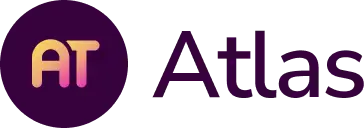What approaches can support CBC alignment?
An inquiry-based approach, open, guided or structured, is advocated by French and Marschall as ‘it enables students to take an active role in posing and answering questions in order to construct meaning’ (p.8., 2018). This can be supported by embedded mini-lessons of direct instruction to support learning outcomes as needed. Educator expertise determines which approach to use, when to use it and what strategies to use to scaffold students making connections.What strategies and tools can support CBC alignment?
In Be a Concept-based Curriculum Hacker I share considered and purposeful steps for teaching teams to begin to collaboratively plan a CBC learning experience. Here I highlight some active learning strategies, many outlined by French and Marschall (2018) in further detail, that can effectively scaffold learning and support alignment of CBC planning and practice. Embedded within an established CBC unit pattern of Engaging, Investigating, Generalizing, Transferring, Reflecting and Sharing integrated tech tools can facilitate implementation of strategies, extend differentiation opportunities and provide a platform for promoting student voice and choice. Explore a curated selection below:Use Engagement Strategies to hook students into their learning and capture their heart and minds.
#1 Simulations give students the chance to think beyond their own lives and connect to content- Prepare students by discussing the possibility of strong emotional responses
- Highlight the intended concepts by pausing during the simulation to record student thinking using a planned conceptual question
- Provide opportunities for reflection on current thinking using talk, writing or drawing to consider intellectual and emotional learning experiences
- Deliberate question formulation practice strategies, such as QFT, drive student engagement and ownership of learning
- Follow the QFT process to support students to produce, categorize, improve and prioritize questions
- Give choice to students in what to express in English and what to express in their mother tongue

Use Investigation Strategies to help students to explore curriculum content and make contextualized connections.
#1 Concentric Case Study can be embedded in structured inquiry requiring teachers to select factual examples or case studies for whole class exploration- Select a broad range of examples and investigate as a whole class to ensure maximum alignment with concepts and understandings
- Make explicit connections and scaffold conceptual understanding in class discussions
- As all students inquire into the same case studies, plan shared experiences such as field trips or experiments
- Assign case studies or factual examples differentiating content by readiness or interest of students
- Students explore a range of different case studies as individuals, in pairs or small groups.
- Provide opportunities for students to represent and share findings, make connections and deepen understandings
Use Generalization Strategies to bring clarity and focus to driving concepts and frame learning.
Erickson (2017) recommends the use of the third person when teachers support students to write generalization statements. She also advises to link two or more concepts, to use qualifiers as needed, to make statements value and judgment free and to use present tense verbs with avoidance of using the verbs is, are, have, influences, impacts and affects. #1 The Frayer Model, a four-part graphic organizer, supports students to unpack driving concepts- Ask students to complete two sections outlining the concept definition and concept attributes
- Invite students to then complete further two sections sorting examples and non-examples of a concept
- Support students by providing less sophisticated examples to sort first, and challenge students to connect to their prior knowledge by inviting them to add their own examples and non-examples
- Co-construct a list of concepts with students throughout the unit, which includes the conceptual lens, driving concept and other concepts drawn through case studies
- Review concepts to ensure students know the meaning of all the concepts, by giving appropriate examples and non-examples
- Ask students to make generalization statements using the Concept Bank by choosing two or more concepts and state a relationship between them
- Pair this strategy with Concept Bank above to support students who are new to generalizing
- Provide any part of the generalizing statement which draws on part of an idea
- Students need to draw on their prior learning and are still required to investigate facts to complete the generalization
Use Transfer Strategies to enable students to apply learning and deepen understanding.
#1 Performance Assessments enable students to show deep understanding by creating a product or performance (Wiggins, 1998)- Develop rubrics which include criteria that assess students ability to explain thinking and justify choices
- Create an authentic performance task that supports concept-based assessment by using the language of the generalizations in order to align to conceptual learning
- Allow students to refer back to case studies and established understandings while engaging in the task
- Actively listen for student voice to help them find opportunities to take their learning beyond the classroom
- Ask students questions to help them clarify their thinking and select the most purposeful course of action
- Take a step back and let students take the lead stepping forward only when help is needed
Use Reflection Strategies to optimize metacognitive thinking skill development through a unit.
#1 Learning blogs support collective student thinking- Invite students to explain their thinking in mother tongue for deeper reflections
- Use blogs, or screen cast apps, where students can speak to images, or their own diagrams or drawings, or write main points in their mother tongue
- Purposefully create regular time for peer discussion to promote reflective thinking
- Ensure regular use of learning journals or learning journal platforms, and embed within routines
- Embed the use of journals during direct instruction mini-lessons to deepen the learning process
- Invite mother tongue language reflections when using journals


